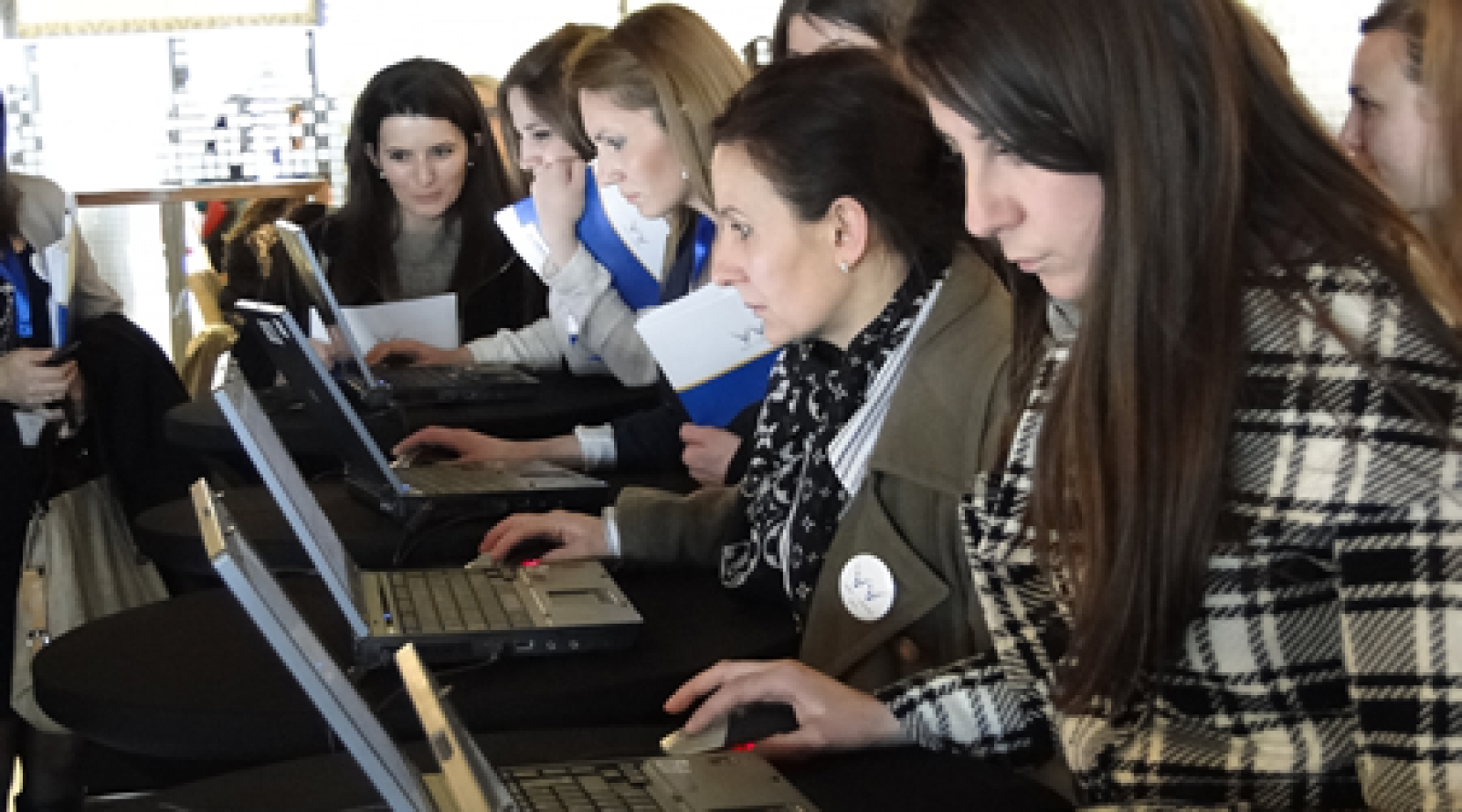
SHARE
When Ilirjana Gafurri, a political party activist in Peja, Kosovo, won a seat on her local council six years ago, she became an advocate for issues such as better health care and women’s equality in her community. But Gafurri had to struggle to make her voice heard in the predominantly male body, where women are often perceived as being passive or not as qualified.
To improve her political skills and gear up for reelection, Gafurri decided to attend Kosovo’s Week of Women (WoW), March 25-29, where she joined more than 100 women from business, political parties, parliament, local government, the media and civil society in the capital, Pristina, to talk about women’s political careers, how parties are organized, making the decision to run for office, and running successful campaigns.
Even though Kosovo is led by a female president, women there continue to face economic, political and social disadvantages. In politics, their representation is seen more as a requirement for political parties than a benefit. This often discourages women from running for office. NDI hosted the first WoW last year to address this problem. The goal then was to create a network for women leaders and to help them gain skills to further their careers. This year’s WoW focused on elections, with an emphasis on local polls, which are planned for the fall.
During WoW Gafurri attended panel discussions with local, regional and international experts, as well as breakout sessions about preparing for public speeches, message development, policy development and how to become valuable to their political parties, among other topics.
“As for the working sessions, personally working on my public speaking skills was of great benefit,” said Gafurri. “I still feel very nervous when talking to a crowd, and I do that [as part of] my work as a councilor, but now I know that I can manage that, and have already started seeing a difference. If there is one thing I learned at the Week of Women it is DO NOT STOP!”
Gafurri, who was interviewed by Radio Television of Kosovo (RTK) at the event, said that WoW gave her the confidence to run for reelection in the fall, and to start working on her campaign for mayor of Peja in four years.
Women from different regions, ethnicities and ages from across the country participated in the five-day event, co-hosted by participants from last year—including teachers, lawyers, political party members, journalists, academics and NGO representatives—with assistance from the Kosovo Assembly’s Women’s Caucus. “It is not like you can meet these women every day,” said Gafurri. “Networking with them will definitely help me in the future.”
“Empowering women is not a personal empowerment,” said Kosovo President Atifete Jahjaga at the conference opening. “It is how you empower your country.”
WoW aims to encourage women to become leaders not just in politics, but also in their everyday life among their family and friends, said Teuta Sahatqija, chair of the women’s caucus, during the event.
Speakers included President Jahjaga; Deputy Prime Minister Mimoza Kusari Lila; Jakup Krasniqi, speaker of the Kosovo Assembly; Tracey Ann Jacobson, U. S. ambassador to Kosovo; Jan Braathu, Norwegian ambassador to Kosovo; members of parliament, media and civil society; women ministers; and representatives from the U.S. Agency for International Development (USAID).
Bardha Uka, a participant from last year’s conference who now works with the Kosovo Youth Council, said WoW helped her work with and encourage other women to be more engaged through her organization.
“What I have gained during Week of Women has helped me build more confidence in believing in what I do, and motivated me to carry on my work,” Uka said.
Many women said they felt more encouraged to run for political office, and participants from the first WoW have already taken what they learned to start their own initiatives.
After WoW 2012, for example, a smaller scale event modeled after the WoW was organized in Gjakova, to share experiences and lessons learned with women from the community.
In Klina, a group of women councilors and civil society representatives from different parties are working together to increase the role of women in local politics and decision making.
And a woman from Gjakova, who participated in last year’s WOW, invited the Parliamentary Women’s Caucus — with assistance from the Friedrich Ebert Stiftung, a nonprofit democracy organization—to organize a round table discussion with women from the communities of Ferizaj and Prizren and the head of the Women’s Caucus, to discuss the benefits of quotas that set aside a certain number of seats for women in elected office, and the success they have already had in supporting women in all levels of politics and society.
The Week of Women 2013 was organized by NDI with support from USAID.
Watch a video about Week of Women 2013 below:
![]()
Click here for a larger picture.
Read more:
- International Summit in Kosovo Produces "Pristina Principles" to Increase Women's Empowerment»
- Kosovo Fellow to Connect Women Leaders at Local, National Levels»
- In Kosovo, Women Reach Beyond 'Soft' Issues in the Media»
Published May 28, 2013


